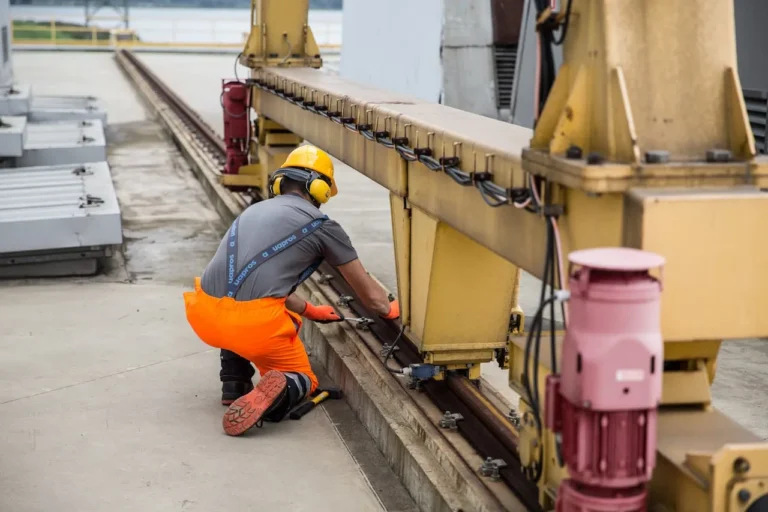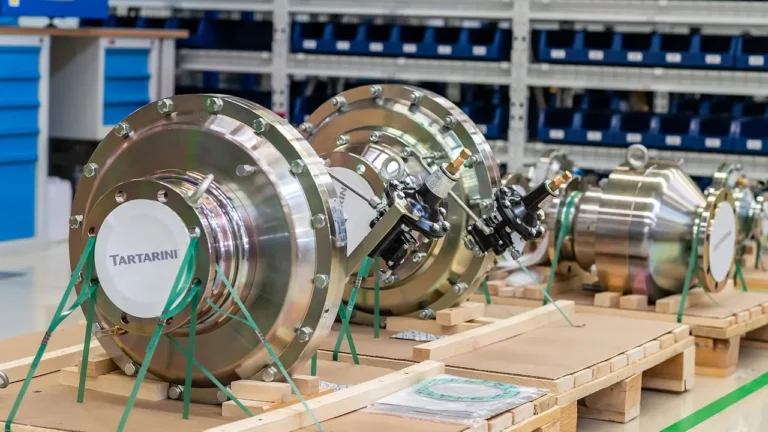
MP Materials Escalates Reindustrialization Strategy Amid China Trade Tensions, Strengthens U.S. Rare Earth Supply Chain
In a bold and calculated response to intensifying trade tensions between the United States and China, MP Materials (NYSE: MP), the operator of America’s only scaled rare earth production facility, has officially halted all shipments of rare earth concentrate to China. The move, prompted by the imposition of retaliatory tariffs and export controls by Beijing, underscores a historic turning point for U.S. industrial policy and national security. Rather than continuing to sell critical materials under punitive 125% tariffs—an arrangement that CEO James Litinsky described as “neither commercially rational nor aligned with America’s national interest”—the company is seizing this moment to accelerate its longstanding strategy to fully reindustrialize the rare earth supply chain on American soil.
The rare earth elements (REE) sector plays a pivotal role in enabling advanced technologies, from electric vehicles (EVs) and wind turbines to defense systems and consumer electronics. Yet, for decades, China has dominated every segment of the rare earth value chain—from mining and separation to magnet production—leaving the U.S. and other nations exposed to geopolitical risk. MP Materials’ decision to cease shipments to China is not a reactionary move, but rather a deliberate pivot that reinforces years of planning, investment, and vision for a vertically integrated, domestic rare earth ecosystem.
A Mission Years in the Making
Since acquiring the Mountain Pass mine in California out of bankruptcy in 2017, MP Materials has had one overriding objective: to restore American leadership in rare earth production. That vision has been backed by nearly $1 billion in strategic investments across mining, processing, separation, and magnet manufacturing. The company’s Mountain Pass facility—once a Cold War-era symbol of American technological prowess—has now been modernized into a state-of-the-art production site with advanced capabilities and an eye on full supply chain sovereignty.
“As a company, we’ve been preparing for this moment since day one,” MP stated in a recent press release. “Our mission, capital strategy, and execution reflect a long-term vision built to withstand short-term dislocation and emerge stronger.”
This long-range planning has proven crucial in light of the current trade landscape. China’s recent imposition of stringent tariffs and export restrictions on rare earth materials, which followed earlier curbs on critical metals like gallium and germanium, further deepened the urgency for diversification. The U.S. government has repeatedly identified rare earths as essential to both national security and economic competitiveness, and MP Materials is now leading the charge to build the infrastructure needed to process these materials domestically.
Mountain Pass: Revitalizing a National Asset
Located in California’s Mojave Desert, the Mountain Pass mine is the only rare earth facility in North America with meaningful production capacity. Today, nearly half of MP’s production is processed in-house at its California refinery—a milestone achieved just over five years into the company’s journey. More notably, nearly all of the processed material is now sold into markets outside China, including strategic U.S. allies such as Japan and South Korea.

This progress represents a significant step toward breaking China’s decades-long chokehold on rare earth markets. According to industry analysts, China accounts for approximately 60% of global rare earth mine production but controls over 85% of the downstream processing and separation capabilities. By expanding its domestic refining capacity, MP Materials is beginning to reverse this imbalance and create resilient alternatives for Western markets.
In the meantime, MP continues to produce and stockpile rare earth concentrate while it accelerates downstream capabilities—specifically, rare earth oxide production, heavy rare earth separation, and permanent magnet manufacturing.
Strategic Expansion: From Ore to Magnet
MP’s strategy goes far beyond simply mining rare earths. Recognizing that value creation and supply chain security lie downstream, the company has embarked on an ambitious expansion plan to cover the entire rare earth-to-magnet pipeline. One of the most critical components of that plan is its new magnetics facility in Fort Worth, Texas—a first-of-its-kind operation that will produce neodymium-iron-boron (NdFeB) magnets for use in EVs, defense applications, and other high-performance technologies.
The Fort Worth plant is expected to become fully operational in 2025 and will serve as a key pillar of America’s industrial base. The project received strong backing from the U.S. Department of Defense (DoD), which has awarded multiple contracts to MP in recent years to support rare earth separation and magnet production under the Defense Production Act.
According to the company, “We are accelerating every phase of our strategy to reindustrialize the rare earth supply chain—on American soil.”
The vertical integration from mine to magnet will not only reduce reliance on foreign processing, but also significantly boost domestic capacity to meet the growing demand from automakers, renewable energy developers, and the aerospace and defense sectors. With EV adoption continuing to rise and clean energy targets becoming more ambitious, the need for permanent magnets—particularly those made from rare earths like neodymium, praseodymium, and dysprosium—has never been greater.
An Urgent Call from Industry
MP Materials’ strategic pivot comes at a time when manufacturers across critical industries are increasingly concerned about the security of their raw material inputs. In recent days, MP has received a surge of inquiries from U.S.-based and international customers seeking stable, long-term partnerships for rare earth materials and magnets.
This heightened interest is not surprising. Recent history has shown that supply chain disruptions—whether from geopolitical strife, pandemic-related bottlenecks, or logistical constraints—can derail production schedules and inflate costs. For manufacturers in the automotive, aerospace, defense, and electronics sectors, the consequences of a rare earth shortfall could be catastrophic.
“Manufacturers across critical industries have urgently reached out in search of a secure, resilient source of materials and magnets,” MP noted. “We are uniquely positioned to answer that call.”
In addition to its customer partnerships, MP is in close and ongoing contact with federal policymakers and defense leaders. The Biden administration has prioritized rare earth independence as part of its broader industrial policy agenda, with specific funding allocated through the Inflation Reduction Act, Bipartisan Infrastructure Law, and CHIPS and Science Act to support domestic critical mineral development.
U.S. Government Support and National Security Alignment
The federal government’s role in bolstering rare earth independence has been pivotal in MP Materials’ growth trajectory. In 2020, the DoD awarded the company funding to develop a heavy rare earth separation facility at Mountain Pass—marking the first such U.S.-based capability in decades. A second contract followed in 2022 to support magnet production in Texas. These efforts form part of a broader national strategy to insulate the country’s most sensitive industries from foreign supply shocks.
In testimony before Congress and in public statements, U.S. officials have repeatedly underscored the need to diversify rare earth supply chains. The Department of Energy, Department of Commerce, and Department of the Interior have each published studies identifying rare earths as essential to America’s economic and national security. With tensions escalating between the U.S. and China—particularly over trade, Taiwan, and technology—the urgency has never been clearer.
The rare earth elements (REE) sector plays a pivotal role in enabling advanced technologies, from electric vehicles (EVs) and wind turbines to defense systems and consumer electronics. Yet, for decades, China has dominated every segment of the rare earth value chain—from mining and separation to magnet production—leaving the U.S. and other nations exposed to geopolitical risk. MP Materials’ decision to cease shipments to China is not a reactionary move, but rather a deliberate pivot that reinforces years of planning, investment, and vision for a vertically integrated, domestic rare earth ecosystem.
By aligning its corporate strategy with national security objectives, MP Materials is positioning itself as a linchpin of 21st-century industrial resilience.
Looking Ahead: Risks, Rewards, and Resilience
Of course, MP Materials accelerated transition comes with its own set of challenges. Scaling downstream operations—particularly magnet production—is a complex undertaking that requires significant capital, technical expertise, and regulatory compliance. Moreover, while U.S. policy has become more supportive, the global rare earth market remains volatile and subject to geopolitical manipulation.
MP Materials has acknowledged these risks in its forward-looking statements, cautioning investors about uncertainties tied to trade policy, market penetration, and project timelines. Nonetheless, the company’s strong cash position, government backing, and early-mover advantage give it a powerful foundation from which to grow.
As the company continues to ramp up oxide and magnet production while stockpiling concentrate, its revenue model will likely shift from raw material exports to value-added product sales. This pivot could yield long-term benefits—not only for MP Materials’ shareholders, but for the broader U.S. economy, which stands to gain from a more robust, self-sufficient industrial ecosystem.
MP Materials’ decision to halt concentrate shipments to China is more than a tactical response to tariffs—it is a bold declaration of independence. At a time when global supply chains are under siege and geopolitical rivalries are redefining commerce, MP is standing at the forefront of a rare earth renaissance that is critical to the future of American industry.
With nearly $1 billion already invested, strategic partnerships with federal agencies, and robust interest from industrial customers, the company is poised to become a cornerstone of the next-generation manufacturing economy. Its integrated approach—from MP Materials mining and refining to separation and magnet production—sets a new standard for strategic resilience and supply chain integrity.
In short, MP Materials is not just adapting to global disruption—it is actively shaping a more secure, sustainable, and sovereign industrial future.




